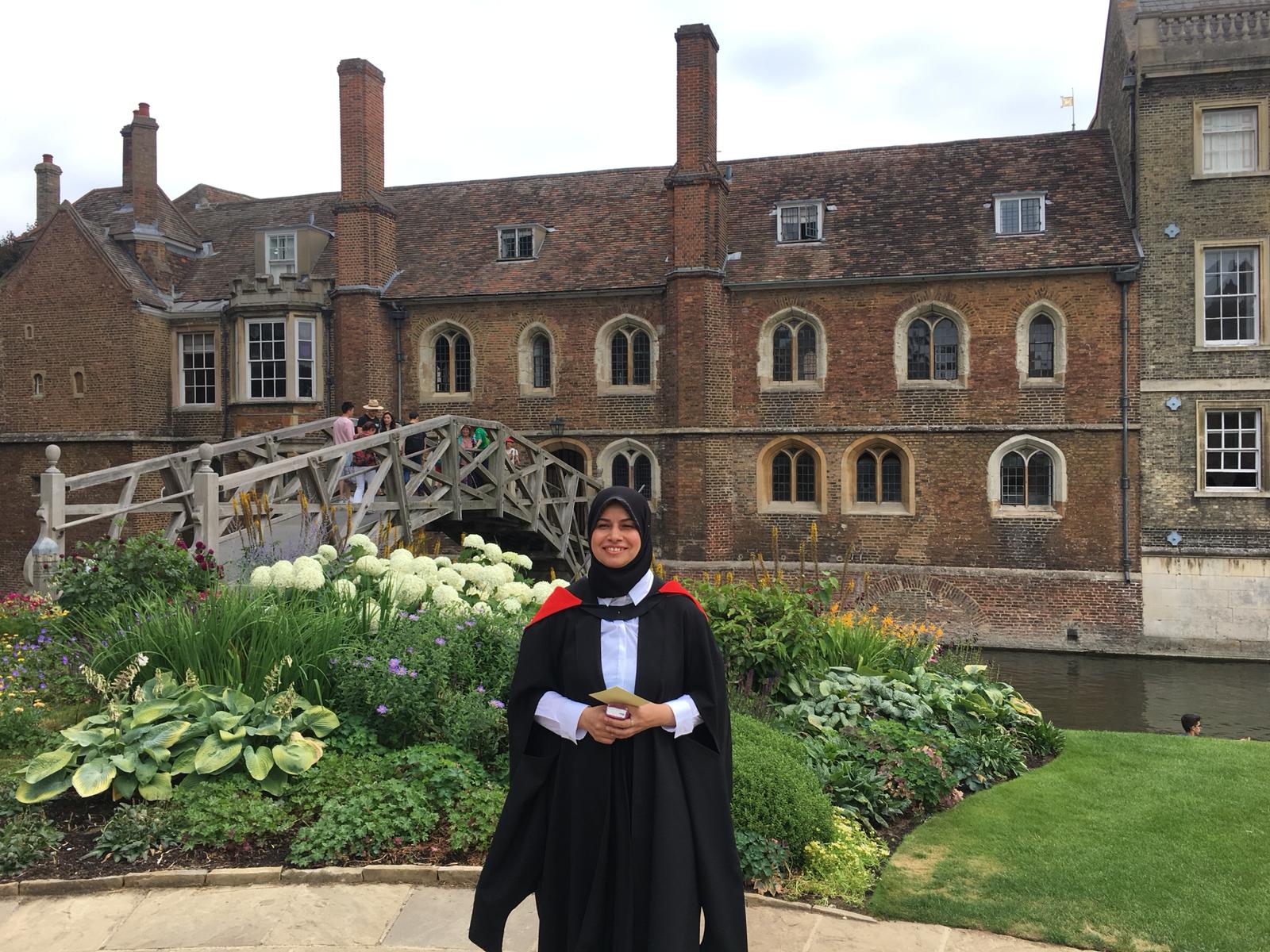
Mona Jebril has been invited to join the network of evidence and expertise at the University of Cambridge's Centre for Science and Policy.
Exchanging views and expertise with policymakers helps me to support development efforts in Palestine and the Middle East and North Africa region as well as informing my own future research with perspectives from practitioners in the field.
Mona Jebril
A Gates Cambridge Scholar has been invited to join a body which connects science and policy as a result of speaking at the Cambridge Festival of Ideas.
Mona Jebril, who recently completed her PhD in Education, was invited to join the network of evidence and expertise at the University of Cambridge's Centre for Science and Policy.[CSaP].
CSaP is working with the Research for Health in Conflict project to bring eight fellows from the Middle East and North Africa region to Cambridge and London later this term.
Mona says exchanging views and expertise with policymakers helps her to support development efforts in Palestine and the MENA region and she hopes it may inform her own future research.
Mona spoke at the Festival of Ideas in the session War in the Middle East: Living Through Extremes about her research findings, highlighting the multiple ways conflict has affected mobility of academics, academic freedom and attempts to reform the higher education system.
In a Q & A before the event, she said: "The political situation in Gaza is difficult and unpredictable. This is reflected in several ways at Gaza’s universities, including the occasional bombardment of university campuses or buildings nearby which has caused the destruction of facilities and disrupted academic activities.
"The factional atmosphere in Gaza also affects academia. For example, students spoke to me about their annoyance about factional celebrations and posters on campus. Factionalism also affects the fair distribution of grants and scholarships and impartial recruitment at Gaza’s universities.
"In the context of occupation, the majority of my research participants said that higher education reform was not a priority for them in terms of something they would protest about. This is because they felt they should focus on other issues such as Palestinian unity, the siege, Israeli settlements and the protection of Al Aqsa mosque.
"The political situation in Gaza has had a critical impact as the blockade and deteriorating economic conditions have sometimes created violence and a lack of trust among Palestinians themselves."












